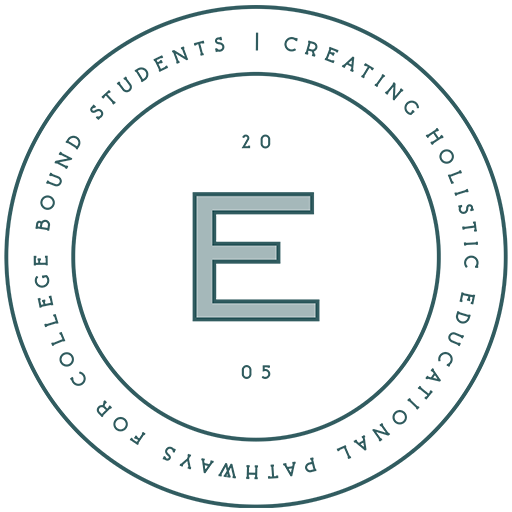Over the Years, I’ve Noticed Something About ADHD Students
Over the years, working with hundreds of students, I’ve noticed something remarkable: my ADHD students share a spark. It’s not just energy (though there’s plenty), or creativity (which they have in spades). It’s fast, original, unfiltered thinking that often goes unnoticed in traditional classrooms.
ADHD can lead to real challenges in high school: homework that feels pointless, endless lectures, and rigid systems that don’t reward quick-witted thinking. But the older these students get, the clearer it becomes—they find their way, especially when they land in a college environment that fits their learning style and personality.
When the environment changes, everything changes. The spark becomes a steady flame.
Why the Right College Fit Matters for ADHD Students
I’ve seen students struggle through high school only to thrive in college—not because their ADHD disappears, but because they finally gain control over how they learn, what they study, and where they focus their energy.
Key factors that help ADHD students flourish in college:
- Flexibility and choice in courses and schedules.
- Professors who value participation, collaboration, and applied learning over rote memorization.
- Proactive support systems such as ADHD coaching, executive function workshops, writing centers, and tutoring.
- A campus culture that celebrates curiosity and creativity, not just conformity.
One former student who barely passed high school English is now thriving as a communications major at a liberal arts college where class discussions are vibrant, projects are hands-on, and assignments connect to real-world interests. The difference wasn’t the student—it was the environment.
The ADHD Advantage in Higher Education
Research—and my own experience—shows that ADHD students bring unique strengths to the table:
- Divergent thinking – imagining solutions others don’t see.
- Hyperfocus – the ability to dive in with impressive intensity when engaged.
- Adaptability – thinking on their feet and pivoting when needed.
- Emotional openness – authenticity, directness, and the capacity to connect quickly with others.
When these strengths are nurtured, ADHD students don’t just succeed in college—they excel.
10 Ways to Support an ADHD Student in the College Search
If you’re a parent, guardian, or mentor, here’s how you can help an ADHD student not only find the right college but step into it confidently:
1. Start with strengths, not struggles
Focus on what your student does well—creatively, academically, and socially—and use that as your lens for the college search.
2. Prioritize environment over prestige
The “best” college is the one where your student will thrive—it doesn’t have to be the most famous name.
3. Look for built-in academic support
Ask about learning centers, ADHD coaching, peer mentoring, and how to access those services. See resources like CHADD’s College Resource Guide.
4. Visit when classes are in session
Observe teaching styles and student interactions. Use this campus visit checklist to make the most of your trip.
5. Ask about flexibility in course selection
Colleges that allow exploration before declaring a major can be better fits for ADHD learners. See examples at Colleges That Change Lives.
6. Check housing options carefully
Consider whether a quieter dorm or a more active environment will best support focus and social connection.
7. Involve the student early—and get expert support
Let students take ownership by researching schools, contacting admissions, and planning tours. Pair that with guidance from mentors who understand ADHD to create strategies tailored to how their brain works. If you’re ready to explore a tailored approach, tell us your story so we can help map the college search to your student’s strengths. You can also download my free Neurodiversity Guide for strategies designed for ADHD and other unique learning profiles.
8. Build executive function skills now
Work on time management, organization, and self-advocacy before college starts.
9. Consider class size and teaching style
Some ADHD students thrive in small, discussion-based settings; others prefer the stimulation of larger, dynamic environments.
10. Normalize support from day one
Frame tutoring, counseling, and coaching as smart strategies, not signs of weakness. Explore ADDitude’s ADHD in College resources for more ideas.
The Transition: From Surviving to Thriving
One of my favorite parts of this work is hearing from students a year or two into college:
“I never thought I’d enjoy school. But now I’m in classes that interest me, my professors actually know me, and I can work the way my brain works best.”
These students haven’t “overcome” their ADHD—they’ve learned to navigate it in a supportive environment. That’s when confidence, capability, and excitement about the future start to spark.
A Final Word to ADHD Teens and Their Families
If you’re an ADHD student: Please believe me when I say your brain is not flawed—it’s uniquely wired, and that wiring can be an incredible strength. You’re not broken. You’re brilliant.
If you’re a parent: You’re not just choosing a school—you’re helping your student find a match that allows their strengths to shine.
Because when an ADHD student finds the right fit, they stop spending energy trying to fit in—and start building a life that truly fits them.
Additional Resources
- Watch my ADHD student success talk on ADDitude for more insights on helping ADHD teens thrive in academics and the college search.
Download my free Neurodiversity Guide for practical tools and strategies to support ADHD and other diverse learning styles.




